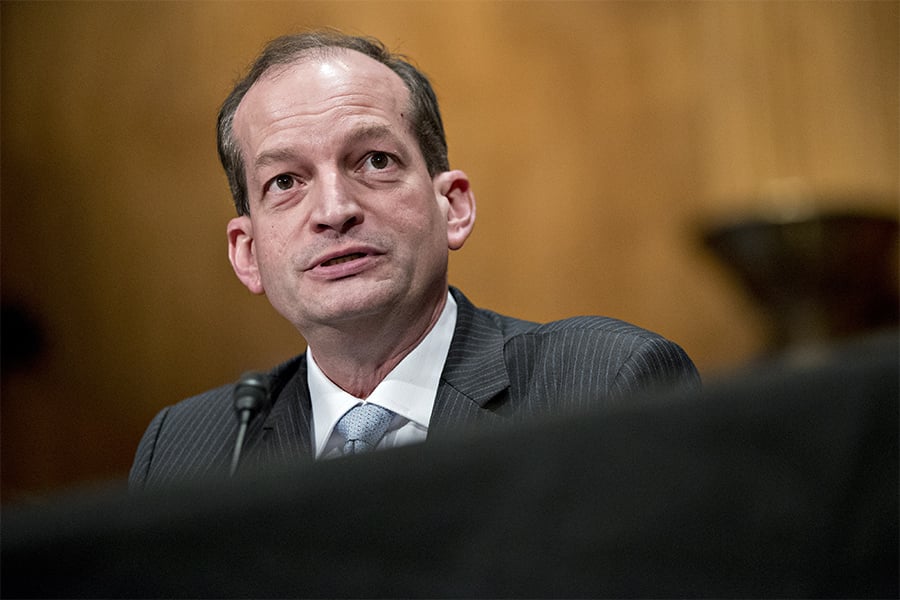Labor Secretary Alexander Acosta told lawmakers Wednesday the agency would revive its fiduciary rule.
In a hearing of the House Education and Labor Committee,
Mr. Acosta said DOL is working with the Securities and Exchange Commission as the
SEC completes its investment advice reform package.
The SEC took the lead on the issue of raising advice standards when the DOL rule was
killed in a federal appeals court last year. The new DOL rule likely would be contoured to the SEC's final regulations, which are expected to come out this summer.
"We are communicating with them, and based on our collaboration, we will be issuing new rules in this area," Mr. Acosta said in an exchange with Rep. Marcia Fudge, D-Ohio.
In a tense Q&A, Ms. Fudge pressed Mr. Acosta on when the new DOL rules would come out, but he declined to give a time line. Mr. Acosta's statement reflected the
DOL regulatory agenda, which includes an item on addressing "regulatory options" in the wake of the demise of the previous fiduciary rule.
The defunct DOL rule would have required brokers to act in the best interests of their clients in retirement accounts. Most of the financial industry opposed the DOL measure, saying it would foist costly new regulatory burdens and legal risk on brokers.
Opponents of the DOL rule have been supportive of the SEC's proposed package, the centerpiece of which is
Regulation Best Interest. The SEC says that provision will raise the broker standard above the current suitability rule.
Mr. Acosta's statement is good news for the industry, according to Jaret Seiberg, an analyst at Cowen Washington Research Group.
"We see this as a positive for financial advisers and active [investment] management as the Labor standard is unlikely to include class-action liability," Mr. Seiberg wrote in an analysis. "And it will make it more complicated to adopt a class-action-liability-focused rule if a Democrat wins [the presidency] in 2020."
Investor advocates assert the DOL rule had the teeth to mitigate broker conflicts of interest, something they say is lacking in the SEC proposal.
The challenge for the DOL is to prove that the SEC rule would provide sufficient protection for investors in retirement plans, said Barbara Roper, director of investor protection at the Consumer Federation of America. Federal retirement law requires that conflicts of interest be eliminated.
"I don't know where they would find the data to support that finding," Ms. Roper said. "The SEC certainly hasn't done the economic analysis to support that finding, and DOL's previous analysis reached the exact opposite conclusion."







